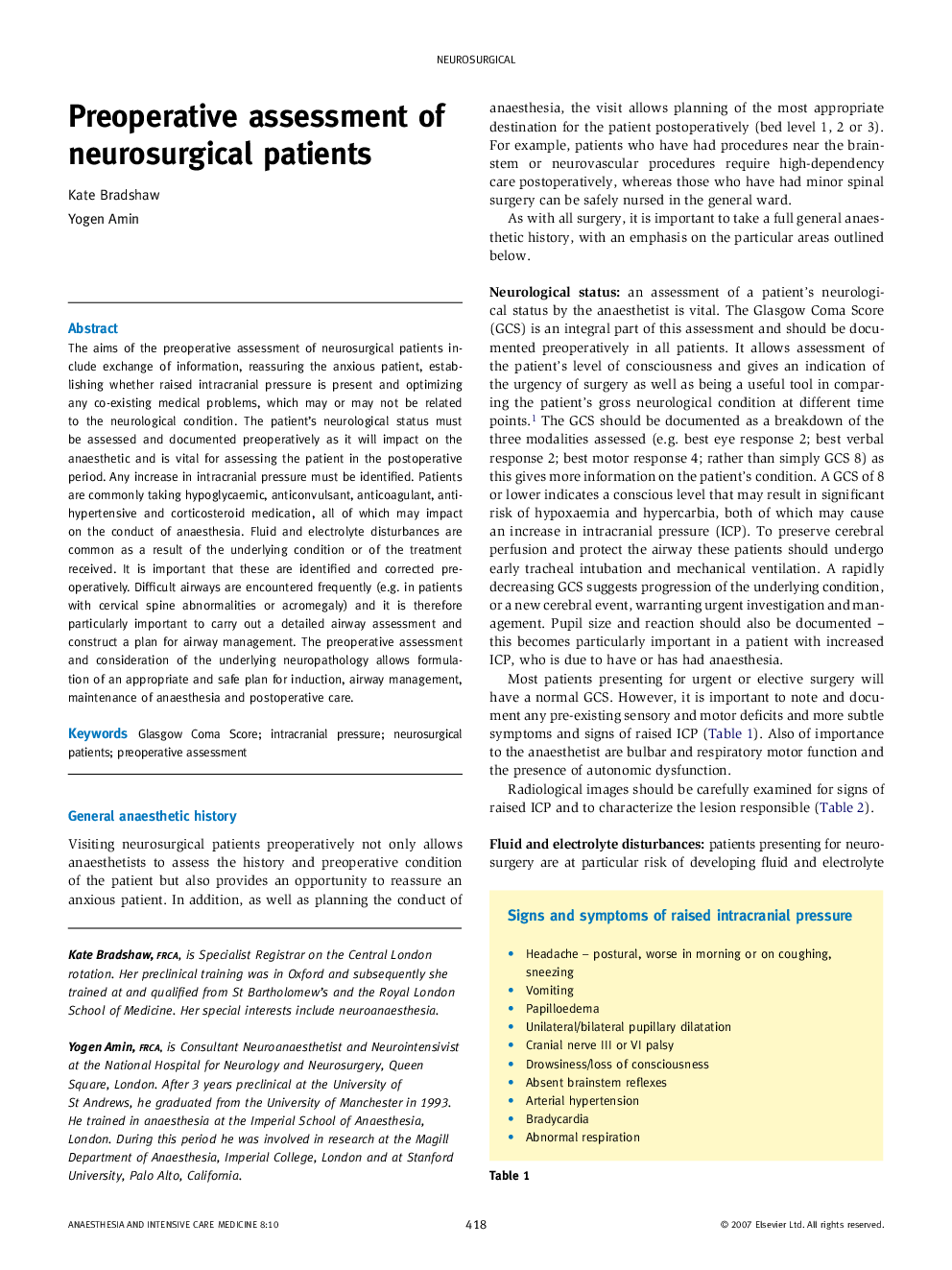| Article ID | Journal | Published Year | Pages | File Type |
|---|---|---|---|---|
| 2743593 | Anaesthesia & Intensive Care Medicine | 2007 | 5 Pages |
The aims of the preoperative assessment of neurosurgical patients include exchange of information, reassuring the anxious patient, establishing whether raised intracranial pressure is present and optimizing any co-existing medical problems, which may or may not be related to the neurological condition. The patient’s neurological status must be assessed and documented preoperatively as it will impact on the anaesthetic and is vital for assessing the patient in the postoperative period. Any increase in intracranial pressure must be identified. Patients are commonly taking hypoglycaemic, anticonvulsant, anticoagulant, antihypertensive and corticosteroid medication, all of which may impact on the conduct of anaesthesia. Fluid and electrolyte disturbances are common as a result of the underlying condition or of the treatment received. It is important that these are identified and corrected preoperatively. Difficult airways are encountered frequently (e.g. in patients with cervical spine abnormalities or acromegaly) and it is therefore particularly important to carry out a detailed airway assessment and construct a plan for airway management. The preoperative assessment and consideration of the underlying neuropathology allows formulation of an appropriate and safe plan for induction, airway management, maintenance of anaesthesia and postoperative care.
